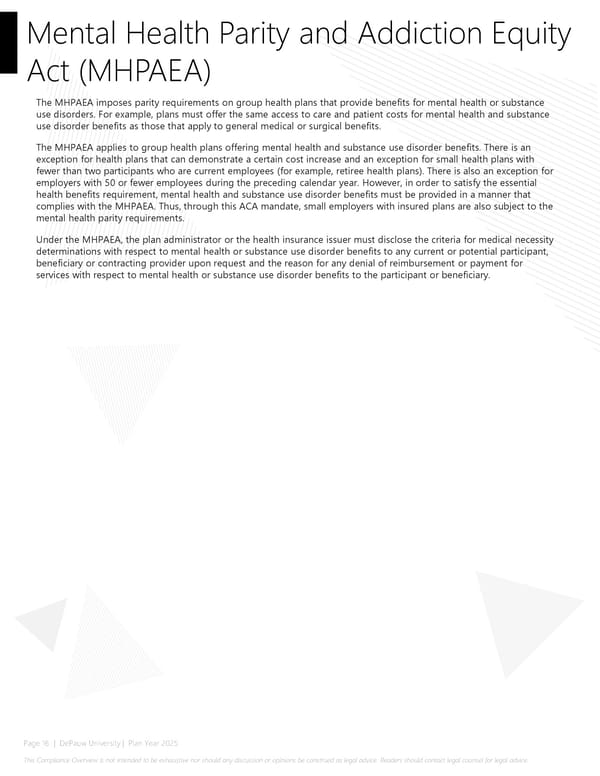Mental Health Parity and Addiction Equity Act (MHPAEA) The MHPAEA imposes parity requirements on group health plans that provide benefits for mental health or substance use disorders. For example, plans must offer the same access to care and patient costs for mental health and substance use disorder benefits as those that apply to general medical or surgical benefits. The MHPAEA applies to group health plans offering mental health and substance use disorder benefits. There is an exception for health plans that can demonstrate a certain cost increase and an exception for small health plans with fewer than two participants who are current employees (for example, retiree health plans). There is also an exception for employers with 50 or fewer employees during the preceding calendar year. However, in order to satisfy the essential health benefits requirement, mental health and substance use disorder benefits must be provided in a manner that complies with the MHPAEA. Thus, through this ACA mandate, small employers with insured plans are also subject to the mental health parity requirements. Under the MHPAEA, the plan administrator or the health insurance issuer must disclose the criteria for medical necessity determinations with respect to mental health or substance use disorder benefits to any current or potential participant, beneficiary or contracting provider upon request and the reason for any denial of reimbursement or payment for services with respect to mental health or substance use disorder benefits to the participant or beneficiary. Page 16 | DePauw University | Plan Year 2025 This Compliance Overview is not intended to be exhaustive nor should any discussion or opinions be construed as legal advice. Readers should contact legal counsel for legal advice.
 2025 DePauw Compliance Bundle Page 15 Page 17
2025 DePauw Compliance Bundle Page 15 Page 17